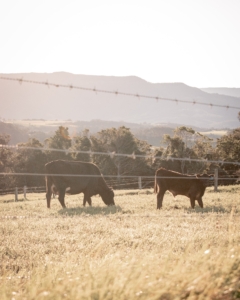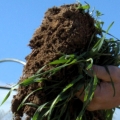Adaptive Planned Grazing, the key to creating more resilient farms in the face of drought
Drought is a recurring wonder of the Australian landscape, and we all know of its damaging effects on our communities and the farmland that supports our economies. As the global climate becomes increasingly erratic, it has never been more critical to expand our understanding of ecological function and land management practices that allow us to be more resilient in the face of impending drought.
Watershed Landcare, in collaboration with Central Tablelands Landcare, has launched a program to encourage widespread and expert use of Adaptive Planned Grazing in our region to build more resilient local economies, environments, and communities.
Adaptive Planned Grazing (APG) is a transformational practice proven to increase drought resilience and forms a key regenerative agriculture strategy. It is an approach to grazing that involves precise control of livestock density and the duration of grazing, usually 1-3 days per paddock. APG empowers landholders and emphasizes the value of goal setting, adaptivity and decision making. This management system is flexible enough to adapt to constantly changing conditions. For example, it can calculate how much feed is available in pasture and foresight to destock before it’s too late.
There is abundant evidence that the adoption of APG results in many significant benefits over time, including Increased growth and diversity of perennial grasses and the return of native grasses, improved water infiltration, nutrient cycling, soil stability, and soil fertility without the use of fertilizers.
 Despite the apparent benefits of APG demonstrated on farms worldwide, it remains out of mainstream practice. Conventional practice fails to plan for prolonged drought and amplifies the negative impacts of scarce rainfall.
Despite the apparent benefits of APG demonstrated on farms worldwide, it remains out of mainstream practice. Conventional practice fails to plan for prolonged drought and amplifies the negative impacts of scarce rainfall.
We’re inviting farmers from the region to join us for a free, one-day workshop where experienced hosts and trainers will share an introduction to Adaptive Planned Grazing in a casual farm setting. See the results for yourself at one of four locations and access accredited Holistic Management trainers. For those that choose to continue, the workshop will be followed up by a guided ‘safe to fail’ trial where participants will have the opportunity to see first-hand how APG can work in their landscape.
The Improving Drought Resilience Using Adaptive Planned Grazing Project offers a profound opportunity for landholders in The Central Tablelands and Slopes. The project is open to large- and small-scale graziers who are eager to become more resilient in the face of drought and with interest to learn more about Adaptive Planned Grazing.
View the project details here
Please contact Maddison O’Brien maddison@watershedlandcare.com.au for more information.












